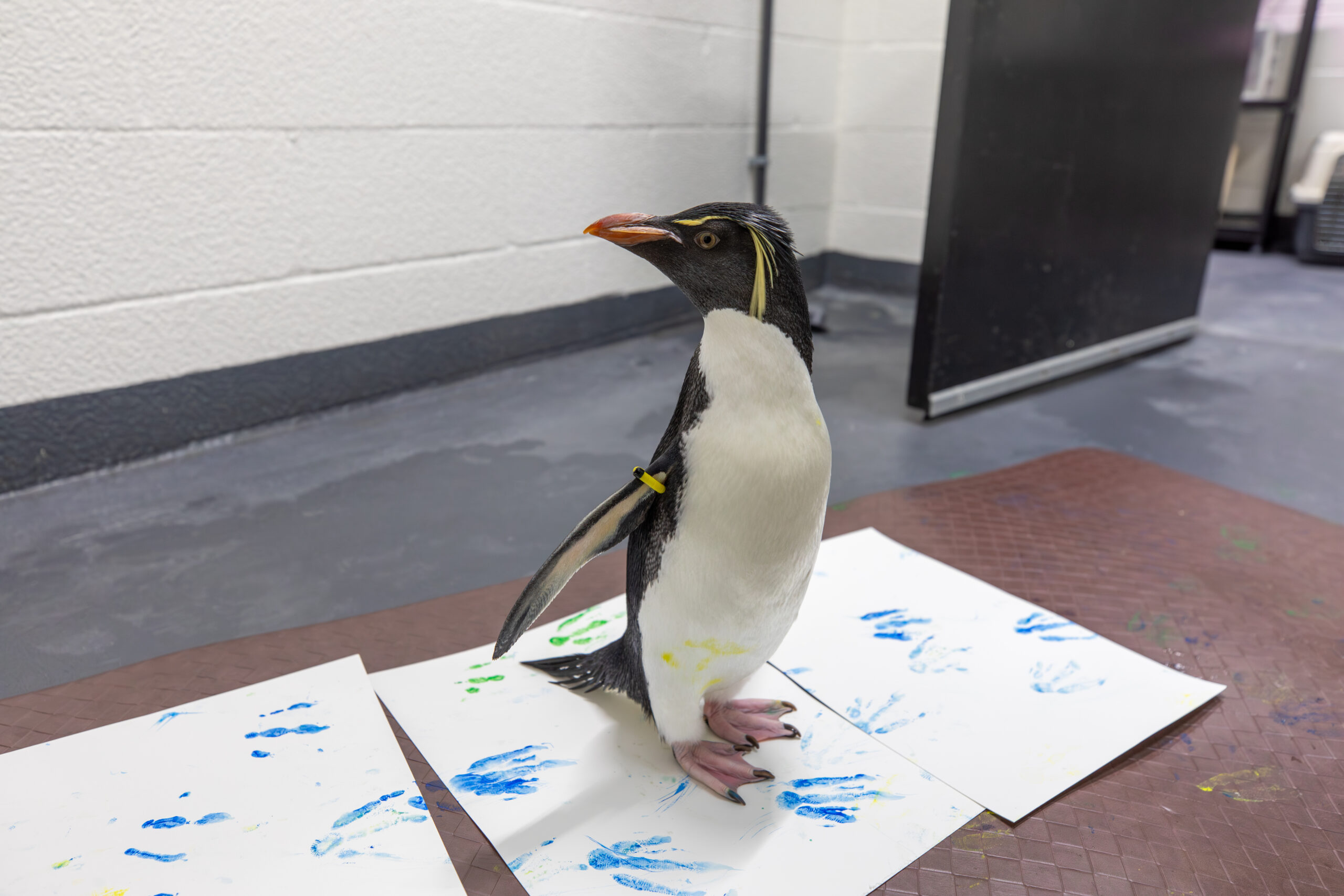Please note: Due to the forecasted winter storm, the New England Aquarium will be closed on Monday, February 23.

BOSTON, MASS. (October 2025) – The New England Aquarium is expanding its enrichment activities and pursuing creative habitat changes to increase engagement for their dynamic penguin colony of all ages.
**PHOTOS AND VIDEO AVAILABLE HERE WITH CREDIT TO NEW ENGLAND AQUARIUM**
Earlier this year, the Aquarium created a “retirement community” for its aging African penguins. The island is separate from the main colony, providing a comfortable and calm environment for the older birds while allowing staff to easily monitor the animals for medical and behavior changes. As staff considered further exhibit enhancements along with mental and physical stimulation for the birds, they sought out new ways to engage the oldest and youngest members of the colony that includes both southern rockhopper and African penguins. More than half of the Aquarium’s penguin colony has met or surpassed their typical life expectancy of 10–15 years in the wild.
“It’s important that we think about helping our animals live their most fulfilled lives, and that includes behavior,” said Mia Luzietti, the Aquarium’s Senior Penguin Trainer and Enrichment Coordinator. “We want the penguins to make their own choices and have control in their environment so that it is as stimulating as possible.”
The Aquarium has a dedicated Training and Enrichment Committee that advances modern, innovative enrichment practices with all of the animals in its care. For the penguins, Luzietti continually explores how to use new objects and strategies to create a wide variety of enrichment activities, involving sensory, auditory, and visual experiences. One example is offering special frozen fish treats inside ice cubes that the rockhopper penguins can carry around, pass to their mates, play with, or use in nesting. Other birds seek out food when it is scattered through the exhibit as enrichment.
“We have a variety of behaviors we’re looking to encourage, whether it’s exercise, exploration, manipulation, or foraging,” Luzietti said. “Even play. It’s a natural behavior for these species, and so we use the enrichment to try to get creative and mix things up.”
For Bray, a two-year-old African penguin, her feet—and a little help from Luzietti—are all she needs to get painting. One-year-old African penguin FitzPatrick recently discovered he likes looking at himself in a mirror. In-Guza, a 27-year-old African penguin, likes to go on “field trips” throughout the Aquarium, where she can look at different fish habitats and other happenings in the building. Bray, Althea, a one-year-old African penguin, and Brenton, a six-year-old African penguin, enjoy playing tug of war.
For 33-year-old African penguin Lambert, the team noticed that despite his sight limitations, he is more willing to swim after taking part in enrichment activities. The team created ramps that accommodate him so he can carefully navigate down the newly cushioned PVC surface of the geriatric island, following tactile mats that serve as his personal highway to the water below. Lambert’s restricted eyesight once made the rocky terrain challenging, but now through enrichment such as one-on-one training sessions and habitat modifications, the penguin trainers have transformed his world. They see Lambert swim more frequently with his younger mate, Dyer, and have begun working on training the broader geriatric penguin population to benefit from the island the way he has.
The penguin team meticulously tracks each bird’s responses to enrichment activities—duration of interactions, behavioral changes, and individual preferences—using this data to continuously refine and improve the program. This innovative approach demonstrates how modern animal care combines scientific rigor with individualized attention, creating environments where each penguin can thrive according to their unique needs and personalities.
MEDIA CONTACT: Pam Bechtold Snyder—617-686-5068; psnyder@neaq.org
